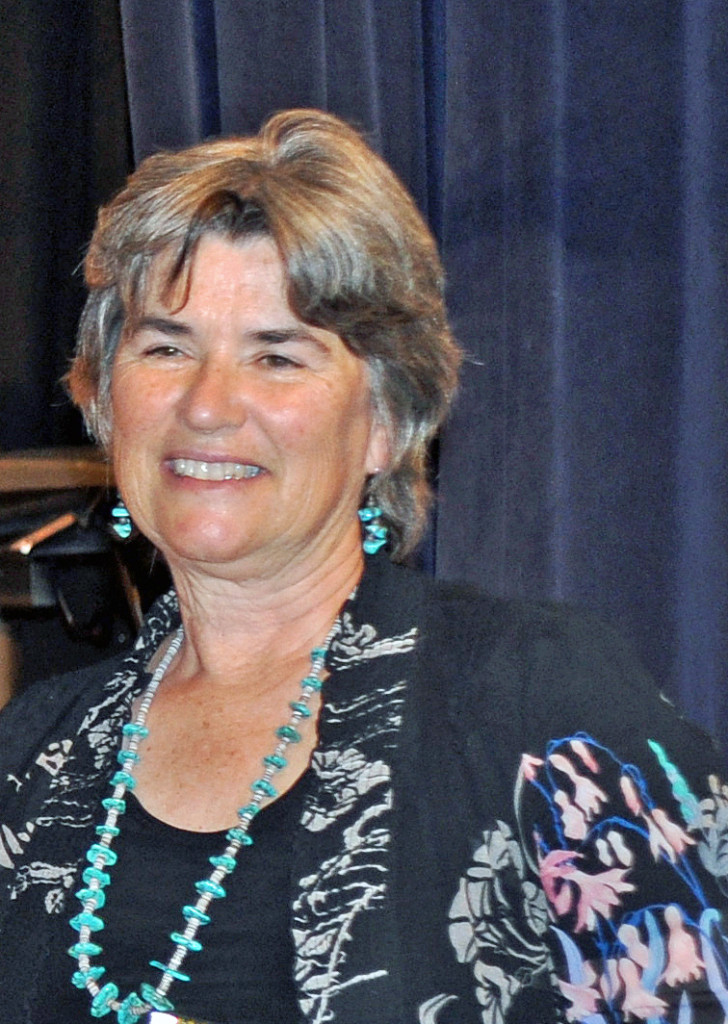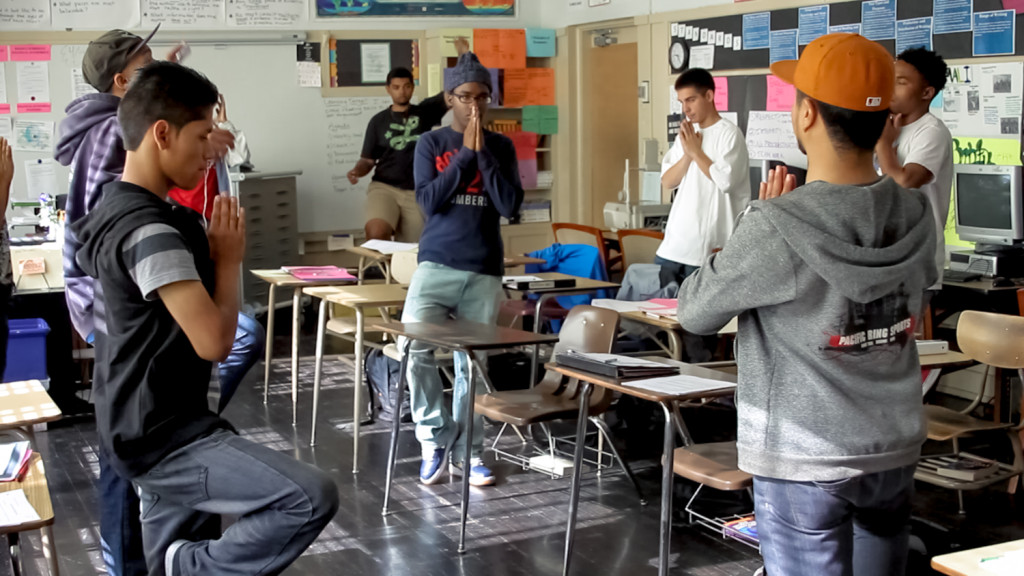Oakland Street Academy Teacher Betsy Schulz Retires After 40 Years
Jul 5, 2015
Posted in Education/Schools/Youth, Labor
By Jaron Epstein
Betsy Schulz, who has taught generations of high school students at Oakland Emiliano Zapata Street Academy, has retired after 42 years
Schulz began her teaching career at the small alternative school, inspired by school’s commitment to the values of the Civil Rights Movement. And she never left.
“It was during the 70’s an era of activism and change, and I wanted to do something where I felt like I could make a real difference,” said Schulz. “I felt like urban education was an area I could do that.”
In an interview with the Post, Schulz did not talk about her retirement plans but about the school that has been her life’s work.
What continues to make the Street Academy unique is its philosophy of social justice and overall attitude towards students, she said. If students did not succeed or fit in at previous schools it, was not their fault.
But if they are ready to learn and believe in themselves and their future, the staff at the school does everything it can to encourage that belief and help the young people make that future a reality.
Schulz says that what has kept her invigorated in her role at the school is the freedom teachers have had to design curriculum to fit students’ changing needs.
As problems within society have worsened, teachers and staff have seen the problems of the students worsen as well.

“We have added both restorative justice and life skills to our curriculum to help deal with the issues which students are faced with,” she said.
The combination of a social justice curriculum – including African American and La Raza Studies – as well as a focus on restorative justice/transformative life skills and commitment to student’s college success make Street Academy a very special school, she said.
“We are always questioning and fine tuning, finding better ways to serve our students, said Schulz.
The restorative justice/transformative life skills program with Nairobi yoga teaches students about focused breathing and strengthening their breathing, said Schulz
“It allows students to acknowledge the stress and tensions brought on throughout the day – and then to be able to put aside whatever is bothering you to be able to focus on the day,” she said.
All Street Academy staff are trained in restorative justice, and the school deals with conflict and discipline in a much different way than most schools.
The student has a chance to make amends with the person who was harmed and then is welcomed back into the community.
“It works often and is a different way of thinking,” she said. “It takes a while for both staff and students to incorporate it into their thinking. Students start off seeing it as a sign of weakness.”

It’s not the normal way to deal on the streets.”
Partners in the restorative justice work, who also support the overall mission and philosophy of the school, have been the Native American Health Center (NAHC), Rose Foundation and Bay Peace.
One of Schultz’s contributions has been a unit in her physiology course. “The students look at not only the biology of diabetes but the social forces that contribute to its prevalence in communities of color,” she said.
Schulz says a critical part of the school’s approach is the Counselor/Teacher/Mentor (CTM). Each member of the staff serves as an academic teacher and is also a counselor and mentor for about 20 CTM students.
Staff members work with students daily and meet with parents quarterly about students’ progress. Staff members check in with parents if the student is missing class or not doing homework and will also call to talk about how great the student is doing.

“When I think back over the years, my CTM students are my fondest memories,” she said. “Parents have said this school is the first one my child has done well at.”
Schulz said she has been luck to find herself in the enviable position where she has been able to do work in which she believes.
“Street academy made it possible to merge the personal with the political,” she said. “Most people live separate lives between what they do for work and what their passions are.”